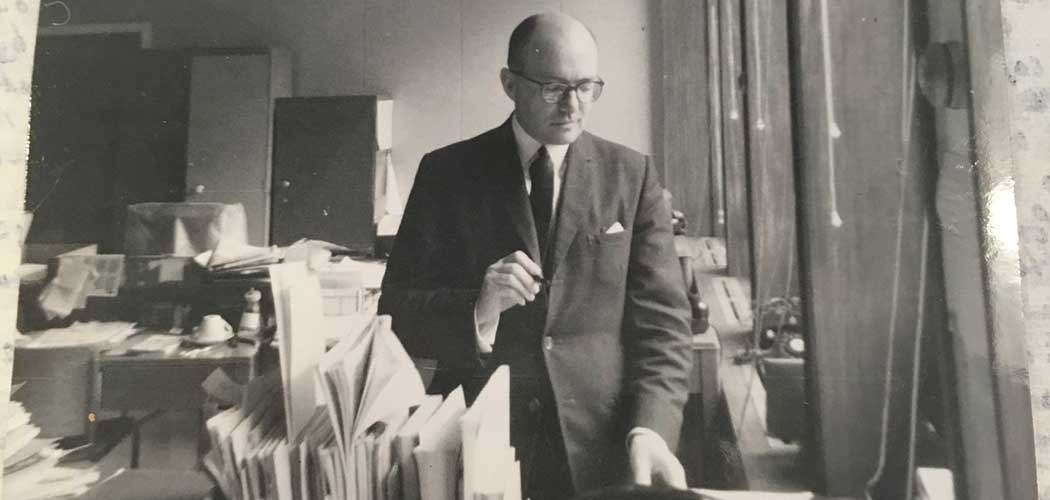David Hudson reports on one closeted gay man’s search for sex and companionship in the 50s and 60s.
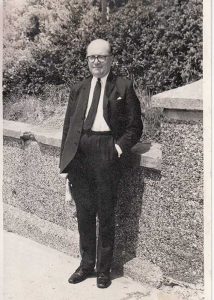
A slice of gay life in London from yesteryear has been brought back to life via the diaries of a closeted gay man of the time.
George Lucas – or simply ‘Mr Lucas’ as he referred to himself in his journals – was born in 1927 in Clacton-on-Sea and died in 2014. Throughout much of his adult life, he kept a diary. In the final few years of his life, he became friends with a journalist, Hugo Greenhalgh. On his death, Lucas left his diaries to Greenhalgh.
Since 2017, Greenhalgh has been posting a couple of entries online each week to a Facebook page (search for ‘mrlucas1927’).
The diaries reveal Lucas’ inner thoughts and feelings – and near-constant search for sex and companionship. By day, he worked in the civil service. By night, he was a regular around Piccadilly Circus and pubs, such as The Golden Lion in Soho, frequented by male prostitutes.
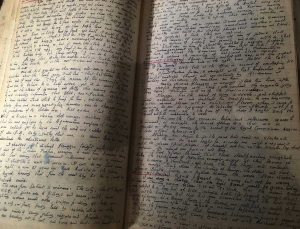
Lucas accepted being gay, but in the 50s and 60s, being openly so would have led to his dismissal and potential arrest. He had no qualms about using sex workers, even if some of them were straight and if his dealings sometimes led to nasty encounters. He was robbed and beaten up on more than one occasion.
On 6 February, the writer and actor Mark Gatiss will read from the diaries at a Queer Britain fundraising event at the Bishopsgate Institute. The diaries will eventually find a home with the Queer Britain museum when it opens.

Ahead of the reading, Greenhalgh spoke to Boyz about the diaries and his relationship with Lucas. He first met the older man in 1994.
“I was an unpaid researcher on a documentary looking at male prostitution in the 20th century,” he says. “My job was to find characters who were willing to talk on camera and talk about their experiences of paying for sex. We put adverts in all the gay papers, like Pink Paper and Capital Gay, and Mr Lucas responded and said ‘Yes, I’ve been buying guys for decades, I’m more than happy to talk to you.’”
Greenhalgh visited Lucas in his “fantastically Miss Haversham” flat in Clapham South. Besides ceramic plates imprinted with the photographs of some of his favourite prostitutes (more on those later), Greenhalgh was struck by the large piles of diaries, which Lucas invited him to look at.
“And when you look at the diaries, they’re full of not just observations of his sex with Irish Labourers, with guardsmen, with rent boys, but also about society and the culture of the time.
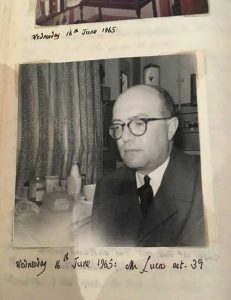
“He’s such a good writer, all the details are brought incredibly to life. You absolutely are there. You hear not just what life is like inside the pub, you hear this wonderfully boring account of his life as a civil servant at the Board of Trade, the really arcane minutiae of writing minutes and the rivalries between the various departments, etc. But you also hear what’s happening in the background: the news and the politics of the time.”
Greenhalgh is currently serialising the 1968 entries on Facebook, but the diaries cover the 1950s to 1990s. He immediately recognised the worth of the diaries as a research archive and told Lucas so. The older man decided to leave the diaries to Greenhalgh in his will.
Lucas eventually decided not to take part in the documentary but was happy to speak for hours about his life to Greenhalgh, who continued to visit the older man 3-5 times a year up until his death.
Mr Lucas was very much a product of his time. Viewed through today’s eyes, he held views most would label as racist or objectionable. Greenhalgh admits that reading of his exploits paying disadvantaged young straight men for sex prompts some “queasiness” at times.
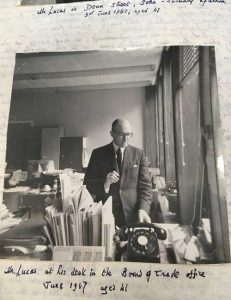
“He’s very rightwing, he’s brought up as a Catholic and very religious with it, and his views are at times completely beyond the pale as perhaps we would see them in a modern-day setting, but there’s also a very strong streak of liberalism in him somehow, which I think saves him as a character.”
What is Greenhalgh’s overriding opinion of Mr Lucas, from his diaries?
“He was utterly miserable,” he responds without hesitation. “That’s one thing that comes across time and time again. He’s absolutely downtrodden and really, really depressed. And I think most of that depression comes from the fact he can’t be openly himself. He can’t be openly gay.
“He was absolutely fine being gay. But the age in which he lived, he was constantly being attacked. He was beaten up numerous times. Both in his home and also on the street. He didn’t like his appearance and lost his hair at quite a young age. He was constantly being called, ‘Hey baldy’, which comes across in the diaries again and again, the taunts and insults he gets on the street, so it was quite a rough time for him, basically.”
When Mr Lucas died in 2014, Greenhalgh was one of only three people to attend his funeral, alongside a fellow co-executor of his will and a neighbour. An only child, Lucas had no siblings.
Greenhalgh had no apprehension about bringing the diaries to a wider audience and says it was something Lucas was clear about when alive.
“Absolutely. We talked about it constantly in terms of what sort of thing would work. We started talking about it way back in the mid-90s before the internet really existed, per se, but he was always extremely keen to get the diaries out there at some point. He left me the diaries in his will with the express purpose of publication in some form.
“He would be absolutely agog with glee,” Greenhalgh laughs, at the attention the diaries are now getting. “He’d be loving it.”
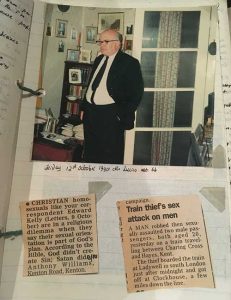
Unfortunately, many of the aforementioned ceramic plates did not survive.
“He had a lot of them back in the day,” says Greenhalgh. “But most of them were lost when he died in 2014. Towards the end, he needed a lot of care so a lot of care workers were going in and out.
“When you arrived at his maisonette, you went up the stairs and there were all these porcelain plates with pictures of guys on them. Some of them were filthy, some of them clothed, some of them not so clothed. He took pictures of the various guardsmen and rent boys and had them put on to plates, of which I’ve still got about 20 of them but a lot of them, the filthier ones, were annoyingly thrown out because of all the care workers visiting him. God knows how he got them developed or printed.”
Greenhalgh says he hopes to turn the diaries into a book at some stage and is in discussions for potential other projects. For now, the diaries will get their first live airing courtesy of Mr Gatiss at the Bishopsgate Institute.
Writer, director and actor Mark Gatiss reads excerpts from the Mr Lucas’ Diaries, in partnership with Queer Britain, the charity working to found an LGBTQ+ national museum, on Thursday 6 February at the Bishopsgate Institute, 230 Bishopsgate, London EC2M 4QH.
Facebook link: facebook.com/mrlucas1927



